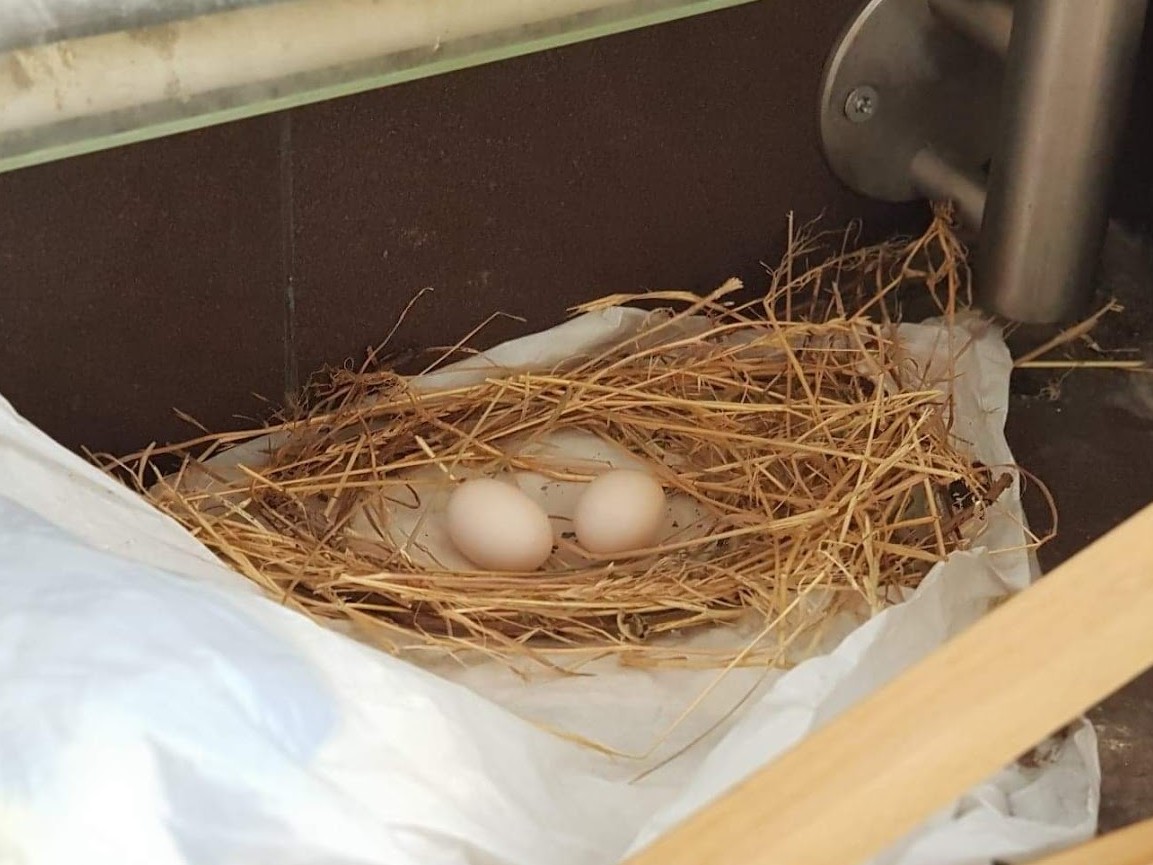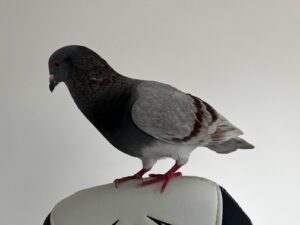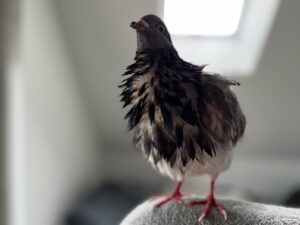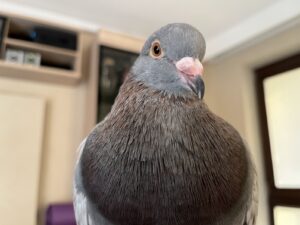As a pet pigeon owner, it’s not uncommon to be surprised when your feathered friend starts laying eggs.
Suddenly, you’re faced with a whole new set of questions and concerns: What do I do with the eggs? Should I incubate them? What happens if I don’t? Can I keep the hatchlings? And so on.
The truth is, pigeon reproduction can be a tricky and sometimes confusing topic, even for experienced pigeon owners.
In this article, I’ll be sharing my own experience as a pet pigeon owner and discussing the various options available to you when dealing with eggs laid by your pet pigeon, as well as the responsibilities that come with pet pigeon ownership.
JUMP TO:
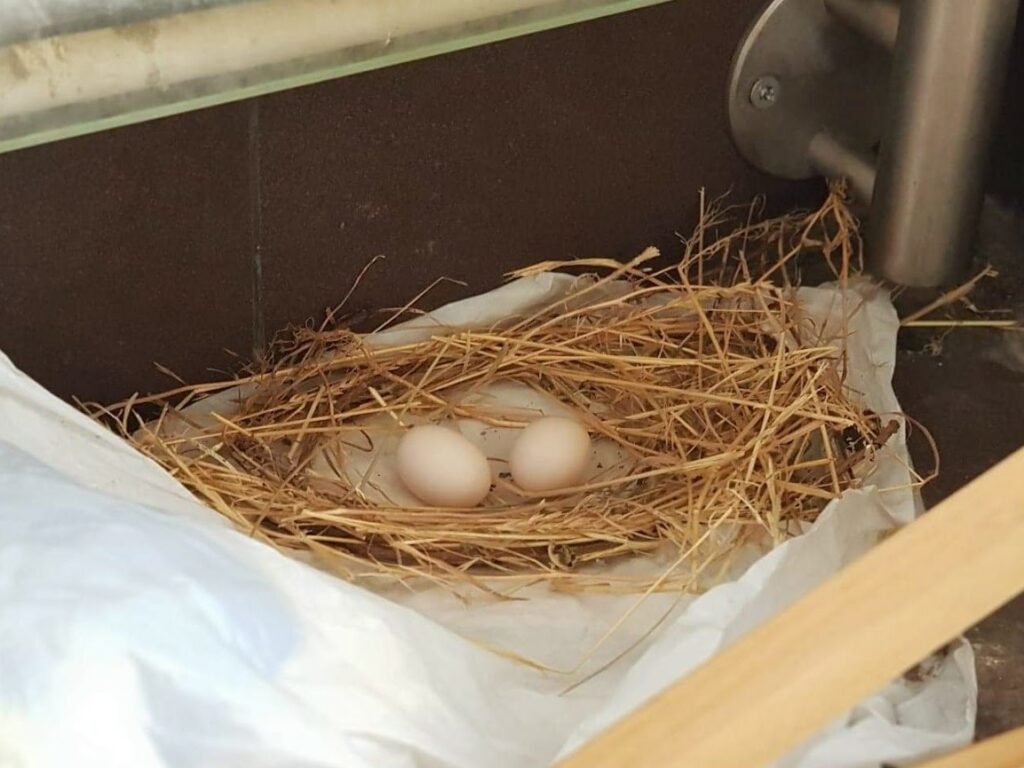
What to do with the eggs my pet pigeon laid? 10-second summary
Pet pigeon ownership comes with responsibilities and it’s important to be informed and make ethical and humane decisions when dealing with eggs laid by your pet pigeon.
Related articles you will be interested in:
- How Long Do Pigeon Eggs Take To Hatch?
- How Many Eggs Does A Pigeon Lay?
- How Often Do Pigeons Lay Eggs?
Understanding Pigeon Reproduction
To understand the best course of action when dealing with eggs laid by your pet pigeon, it’s important to first understand the pigeon reproductive cycle and the triggers that lead to egg-laying.
Pigeons, like many birds, have a seasonal breeding cycle that is triggered by changes in daylight and temperature.
In the wild, pigeons typically breed in the spring and summer months when there is an abundance of food and favorable conditions for raising young. However, domestic pigeons can breed year-round, as they are not subject to the same natural triggers.
Explanation of the pigeon reproductive cycle and the triggers that lead to egg-laying
Domestic pigeons are also known to lay eggs even if they don’t have a mate, or if the mate is not present.
This is because domestication has altered the hormonal balance in pigeons, which can cause them to lay eggs even if they are not in a breeding situation.
So, it’s not uncommon for pet pigeon owners to find eggs in their pigeon’s nest even if they don’t have a mate or if the mate is not present.
Discussion of the differences between wild and domestic pigeons in terms of reproduction
It’s also important to note that wild pigeons and domestic pigeons have different breeding patterns and behaviors.
Wild pigeons typically lay one or two eggs per clutch and only breed once or twice a year, while domestic pigeons can lay several eggs per clutch and breed multiple times a year.
Wild pigeons also do not lay eggs unless they are in a breeding situation and they have a mate.
Incubation and Hatchling Care
Description of the process of incubating pigeon eggs and the necessary conditions for successful hatching
- Incubation Process: Incubating pigeon eggs involves maintaining the proper temperature and humidity levels, as well as turning the eggs regularly to ensure the proper development of the embryo. The process typically takes 17-19 days. It’s important to note that incubation requires a high level of commitment and can be time-consuming, so it’s important to consider whether you have the resources and dedication to take on this responsibility before deciding to incubate eggs.
- Necessary conditions for successful hatching: To ensure successful hatching, the eggs must be kept at a consistent temperature of approximately 99.5°F and a humidity level of around 50-55%. The eggs must also be turned regularly to prevent the yolk from sticking to the shell.
Discussion of the care and feeding of hatchlings, including the importance of proper nutrition and socialization
- Care and feeding of hatchlings: Once the eggs have hatched, it’s important to provide the hatchlings with proper care and nutrition. This includes providing a heat source to keep them warm, as well as a high-quality diet that includes a variety of grains, fruits, and vegetables, as well as an appropriate amount of protein, vitamins, and minerals. It’s also important to provide socialization and interaction to ensure that the hatchlings develop properly.
- Importance of proper nutrition and socialization: Proper nutrition and socialization are crucial for the overall health and well-being of the hatchlings. A well-balanced diet with enough vitamins and minerals, and providing enough socialization, will ensure that the hatchlings grow strong and healthy.
Alternatives to Incubation
Overview of options for dealing with eggs laid by pet pigeons,
If you’re not able or willing to incubate eggs laid by your pet pigeon, there are other options to consider.
Some pet pigeon owners choose to give the eggs to a breeder or wild rehabilitation center, while others opt to simply dispose of the eggs.
Each option has its own pros and cons and it’s important to consider the factors that may influence your decision.
Giving eggs to a breeder or wild rehabilitation center allows the eggs to have a chance at hatching and potentially being raised by a professional who has the resources and experience to properly care for the hatchlings.
However, it’s important to note that not all breeders or rehabilitation centers will accept eggs, and some may have specific requirements or regulations that must be met before they will accept them.
Disposing of the eggs is the simplest option and eliminates the need for incubation and care of the hatchlings. However, it’s important to ensure that the eggs are disposed of in a humane and ethical manner.
Discussion of the pros and cons of each option and factors to consider when making a decision
When making a decision on how to deal with eggs laid by your pet pigeon, it’s important to consider your own resources and capabilities, as well as the availability of breeders or rehabilitation centers in your area. It’s also important to consider the ethical and humane treatment of the eggs.
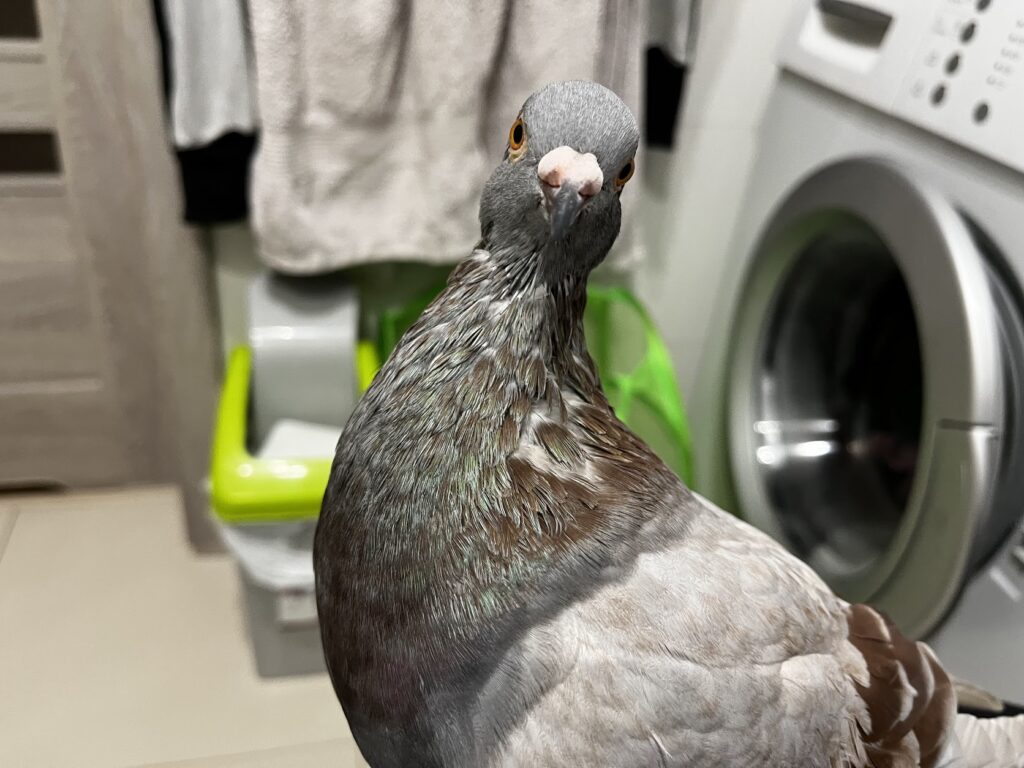
Conclusion
Summary of the key points covered in the article
In this article, we discussed the various options available for dealing with eggs laid by pet pigeons, as well as the responsibilities that come with pet pigeon ownership.
We covered the pigeon reproductive cycle, the triggers that lead to egg-laying, the process of incubation and the necessary conditions for successful hatching, the care and feeding of hatchlings, and the importance of proper nutrition and socialization.
We also discussed alternative options such as giving eggs to a breeder or wild rehabilitation center or disposing of them and the factors to consider when making a decision.
A reminder of the importance of understanding pigeon reproduction and the responsibilities that come with pet pigeon ownership
It’s important to remember that understanding pigeon reproduction and the triggers that lead to egg-laying is crucial for pet pigeon owners to make informed decisions when dealing with eggs laid by their pet pigeons.
Incubating and raising pigeon hatchlings requires a high level of commitment and attention to detail.
As a pet pigeon owner, it’s important to consider the necessary conditions for successful hatching and the care and feeding required for the hatchlings.
Proper nutrition and socialization are crucial for the overall health and well-being of the hatchlings and should not be overlooked.
Frequently asked questions about pet pigeons laying eggs
Can pet pigeons lay eggs even if they don’t have a mate?
Yes, pet pigeons can lay eggs even if they don’t have a mate due to the hormonal balance being altered by domestication.
How often do pet pigeons lay eggs?
Pet pigeons can lay eggs multiple times a year, unlike wild pigeons that typically breed once or twice a year.
Can I incubate and raise the hatchlings from eggs laid by my pet pigeon?
Yes, you can incubate and raise the hatchlings from eggs laid by your pet pigeon, but it requires a high level of commitment and attention to detail.
What should I do with eggs laid by my pet pigeon if I don’t want to incubate them?
You can give the eggs to a breeder or wild rehabilitation center, or dispose of them in a humane and ethical manner.
Is it safe to dispose of eggs laid by my pet pigeon?
Yes, it’s safe to dispose of eggs laid by your pet pigeon as long as it is done in a humane and ethical manner.
Make sure to check other articles about pet pigeons:
- Are Pigeons Good Pets?
- How To Take Care Of A Pet Pigeon
- Names For Pigeons (260+)
- How To Tell If A Pigeon Is Male Or Female?

